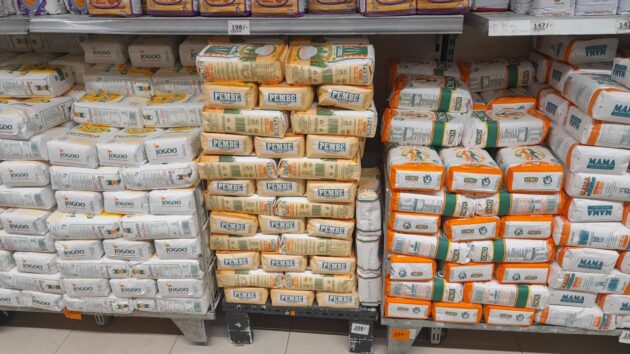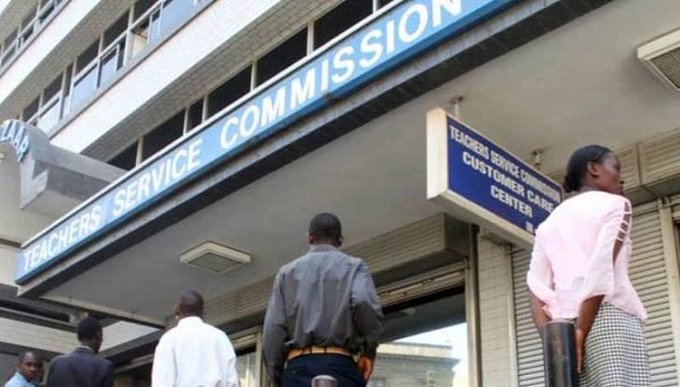- Money254 Money Weekly
- Posts
- Is a Budget Enough? Why Your Money Needs More Than That
Is a Budget Enough? Why Your Money Needs More Than That
A budget is essentially a snapshot of your income and expenses. It tells you where your money is going, but it doesn't always address the 'why' or the 'what next.' It’s like knowing all the ingredients in your chapati but not having a recipe for a full meal.Your financial well-being is a dynamic journey, not a static spreadsheet. Relying solely on a budget can leave you vulnerable to unexpected storms and miss out on growth opportunities.

Greetings, and welcome to the 30th edition of the Wallet Wellness Newsletter - your midweek source of practical financial tips to elevate your money management skills!
We hope you got a chance to read last week’s edition, where we discussed how 5 ways to fix money anxiety. This week, we shift gears to helping you make the most out of your budget.
As always, be sure to check out the Concept Corner below for a deep dive into the money concept of the week.
Let’s dive in!
This week’s Wallet Wellness is brought to you by LUA, a free AI Assistant on WhatsApp
How do you picture Nairobi in 2040? We asked this question to our readers and they answered. Above is an image showing our reader’s vision of Nairobi generated by Lua, a free Kenyan AI assistant on WhatsApp that can generate images and do much more.
Money254 only has 7 days left to award Ksh5,000 to the creator of the most interesting Nairobi 2040 image. This challenge ends on July 30
To participate, chat with Lua for free via this link, ask Lua to generate a Nairobi 2040 image representing your vision, post the image on social media and tag Money254, then share the post link to [email protected].
MONEY254 TIP OF THE WEEK
Is a Budget Enough? Why Your Money Needs More Than That
Sarah always thought she was doing the right thing. Every month, she made a budget: rent, shopping, transport, and savings. She even tracked her M-Pesa paybill and till payments to the coin.
But somehow, at the end of every month, she was still stuck. Zero balance. Frustrated. Wondering where the money went.
Turns out, budgeting was only the beginning, not the whole plan.
A budget is essentially a snapshot of your income and expenses. It tells you where your money is going, but it doesn't always address the 'why' or the 'what next.' It’s like knowing all the ingredients in your chapati but not having a recipe for a full meal.
Your financial well-being is a dynamic journey, not a static spreadsheet. Relying solely on a budget can leave you vulnerable to unexpected storms and miss out on opportunities for growth.
Beyond the Budget: Here are 5 pillars your money needs
A Clear Financial Vision (Your 'Why')
Why are you budgeting? Is it to buy land in Kiserian, save for your child’s university fees, or eventually retire comfortably in your rural home? Without a clear destination, your budget is just a list of numbers.
Practical Example: Instead of just budgeting for "savings," define it as "Ksh500,000 down payment for a plot in Kitengela by 2028." This turns a mundane task into a motivating goal.
An Emergency Fund
Life in Kenya is unpredictable. A sudden illness, a car breakdown on Thika Road, or an unexpected job loss can derail even the most perfect budget. An emergency fund is liquid cash, readily accessible, to cover 3-6 months of essential living expenses.
Practical Example: If your monthly expenses are Ksh40,000, aim for an emergency fund of Ksh120,000 - Ksh240,000 in a separate, accessible savings account. This fund acts as a buffer, preventing you from dipping into investments or taking out expensive loans when unforeseen events strike.
Debt Management Strategy
For many Kenyans, debt – whether from mobile loans, Saccos, or bank loans, can be a heavy burden. A budget might show you your loan payments, but it won't necessarily tell you the most efficient way to clear them. A strategy involves prioritizing high-interest debts, consolidating where possible, and actively working towards becoming debt-free.
Practical Example: If you have a high-interest mobile loan and a lower-interest Sacco loan, focus extra payments on clearing the mobile loan first. Once that's done, snowball those payments into the Sacco loan.
Investment & Growth Plan
A budget helps you save, but an investment plan helps your money work for you. This could involve unit trusts, real estate, or even starting a small side business.
Practical Example: After building your emergency fund, allocate a portion of your monthly savings to an investment vehicle. Even Ksh5,000 into a low-cost unit trust fund can accumulate significantly over time, helping you achieve your long-term goals like buying that dream home or securing your retirement.
Regular Financial Reviews & Adjustments
Life is constantly changing – salary increments, new family responsibilities, market shifts. A budget is a living document, not carved in stone. Regularly review your financial situation (at least quarterly) and adjust your budget and plans accordingly.
Practical Example: Every three months, sit down and compare your actual spending to your budget. Did you spend more on matatu fares than expected? Is your rent going up next year? Use this information to tweak your budget, set new saving targets, or explore ways to increase your income.
Final Thought
A budget is an excellent starting point, providing clarity on your cash flow. But for true financial resilience and growth in the Kenyan context, you need to go beyond just tracking. Cultivate a clear vision, build an emergency safety net, actively manage your debts, invest for the future, and regularly review your progress. Only then will your money not just exist, but truly thrive.
CONCEPT CORNER
Real Estate Debt
Real estate debt is when you invest in property by lending money to developers instead of buying property yourself. In return, you earn fixed interest income over a set period. It’s like giving a loan for real estate projects. It offers predictable returns but carries risks if the developer delays or defaults. You don’t own the property. Read on
Money Tips & Career Advice
MONEY254 #MONEYTOK
4 Reasons to Start Saving for December in July
December comes with extra costs—travel, gifts, shopping—often doubling your usual budget. Prices also shoot up due to high demand, from transport to groceries and accommodation. Relying solely on your December salary may leave you stretched, since it still needs to cover regular bills.
Saving early gives you room to plan, avoids debt, and keeps your normal savings untouched. Come January, you'll be financially stable and even able to take advantage of post-holiday deals.
@money254hq 𝟒 𝐑𝐞𝐚𝐬𝐨𝐧𝐬 𝐭𝐨 𝐒𝐭𝐚𝐫𝐭 𝐒𝐚𝐯𝐢𝐧𝐠 𝐟𝐨𝐫 𝐃𝐞𝐜𝐞𝐦𝐛𝐞𝐫 𝐢𝐧 𝐉𝐮𝐥𝐲 December comes with extra costs—travel, gifts, shopping—often doubling your usual budget. P... See more
That's it for this edition of Wallet Wellness. We hope these financial tips have added some energy to your hustle. Stay tuned for more practical insights in our next edition of "Wallet Wellness" next week, and watch out for Money Weekly in your inbox this Friday.
Also, don’t forget to download the Money254 App on the Google Play Store, and remember that we can help you compare over 300 loans, savings accounts, current accounts, and more if you’re thinking about your next product.
Cheers to your wallet's well-being!
Money254 editorial team.
FEEDBACK REQUEST ❤️
Poll: What do you think of this midweek Wallet Wellness email?We'd love to have your feedback on this Wallet Wellness newsletter. Let us know how you feel about it below! You will be able to give us direct feedback on how we can make it back after voting 🙏 |
Thank you to all of you who gave feedback on last weeks newsletter!
❤️ Share with a friend
Thanks for reading. If you liked this week’s Wallet Wellness email, we’d love for you to share it with a friend.
If this email was forwarded to you, you can subscribe here.


.jpg)

.jpg)
.jpg)
.jpg)
